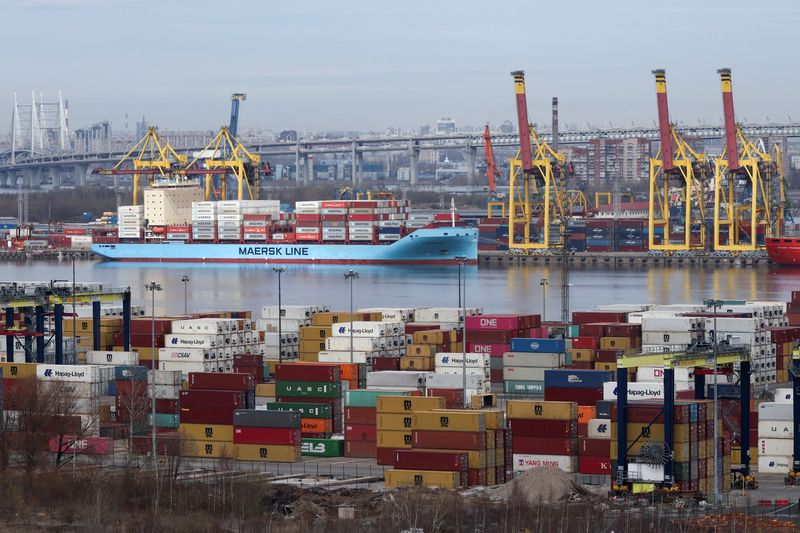(Reuters) - The Russian economy, hit by unprecedented Western sanctions, is potentially resilient but needs a significant increase in imports and greater freedoms, economists at state development bank VEB said on Tuesday.
The commodity-dependent economy is plunging into recession amid double-digit inflation after Russia sent thousands of troops into Ukraine on Feb. 24, triggering sweeping sanctions from the West that isolated the Russian economy and its financial sector.
Russia needs a significant increase in "critical imports as well as imports required to modernise the ... economy and raise its technological and production independence along with increasing investment in the purchase of necessary foreign assets", VEB economists said in a report.
Russia's economy minister said last week the main challenges facing the Russian economy were supply chain disruptions and a significant reduction in imports.
Russia's imports could have fallen by 70-80% in April, according to CentroCreditBank's analyst Evgeny Suvorov.
"The scale of Russia's isolation is shocking. And it could have dire consequences," Suvorov said.
In the report called "the Russian economy in conditions of a hybrid war", VEB did not specifically mention the Ukrainian conflict, but said Russia needs "mobilisation of freedom and responsibility instead of a mobilisation economy".
Highlighting the need to invest in developing wealth, education, health, science and technology, VEB economists said the economy had "fairly high potential for resilience to short-term and medium-term shocks, but a new long-term policy needs to be built."
"Under the conditions of the economic blockade by the West, the task of accumulating state savings, especially in the form of foreign exchange assets, loses its meaning."
Russia's gold and forex reserves were above $600 billion before Moscow started what it calls "a special military operation" in Ukraine, but Western sanctions have frozen around half of Russia's state coffers.
VEB economists said they expected gross domestic product to shrink 10.2% in 2022 under its base scenario after 4.7% growth in 2021, and inflation to accelerate to 18.7% from 8.4%, projecting the central bank's key rate at 12% by year-end.
Real disposable incomes are projected to fall by 9.2% this year, under VEB's base scenario.
A drop in incomes is a sensitive issue, especially with rising prices hitting living standards. For years, President Vladimir Putin has promised to raise real disposable incomes.
If the central bank cuts the key rate to 8% by the end of 2022 from the current 14%, it will lead to an extra increase in lending of 1 trillion roubles ($15 billion), VEB economists said.
This would help reduce the contraction in GDP by 0.4 percentage points, they said.
($1 = 64.7520 roubles)
